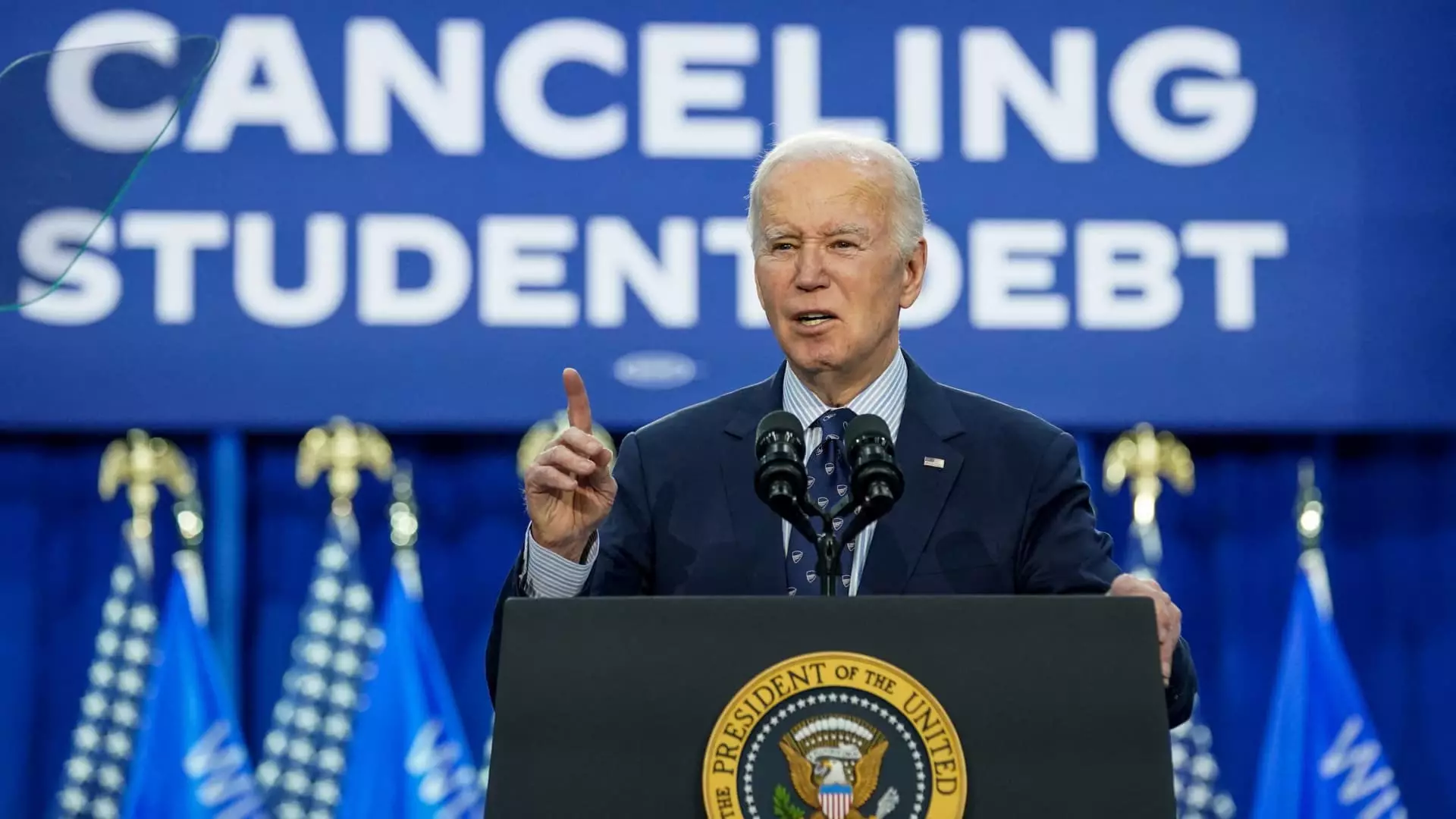In a recent development, the Biden administration’s plans for sweeping student loan forgiveness have faced a setback. Despite promising emails sent to millions of federal student loan borrowers earlier this summer, a Republican-led challenge has temporarily blocked the implementation of the debt relief. U.S. District Judge Randal Hall issued a temporary restraining order against President Joe Biden’s efforts to cancel student debt, responding to a lawsuit brought by seven Republican-led states.
The states involved in the lawsuit, including Alabama, Arkansas, Florida, Georgia, Missouri, North Dakota, and Ohio, argued that the U.S. Department of Education’s debt cancellation efforts were illegal. Judge Hall sided with the states, blocking the administration from moving forward with its plan until a hearing scheduled for September 18. The court’s decision has created uncertainty surrounding the fate of the administration’s student loan forgiveness program.
The Biden administration’s previous attempt to offer student debt forgiveness through executive action was ruled unconstitutional by the Supreme Court in June 2023. As a result, the administration pursued a regulatory process for its revised student loan forgiveness plan to avoid further legal challenges. However, the recent lawsuit claimed that the Education Department had ordered federal loan servicers to begin erasing loans as early as September 3, potentially disrupting the planned timeline for debt relief.
Legal experts like Luke Herrine have expressed doubts about the allegations made in the lawsuit, suggesting that the administration likely instructed loan servicers to prepare for debt forgiveness pending the finalization of the rule. Despite the ongoing legal battles, the Biden administration remains committed to finding ways to deliver relief to student loan borrowers. The fate of the administration’s new student loan forgiveness plan, as well as its affordable repayment program SAVE, hangs in the balance due to the legal challenges initiated by GOP-led states.
The delays in implementing student loan forgiveness and affordable repayment plans could have significant political implications, especially with the upcoming 2024 presidential election. The Biden administration’s efforts to address the student debt crisis and provide relief to borrowers are now stalled due to the legal hurdles posed by Republican opposition. It is evident that there is a political motivation behind the challenges, as student debt cancellation remains a popular policy issue with voters.
The fight for student loan forgiveness reflects the broader political divide in the country. The Biden administration’s attempts to address the student debt crisis and provide relief to millions of borrowers are being met with resistance from Republican-led states. The legal battles surrounding the debt cancellation efforts highlight the challenges of implementing progressive policies in a polarized political environment. The outcome of these legal challenges will have a significant impact on the future of student loan forgiveness in the United States.

